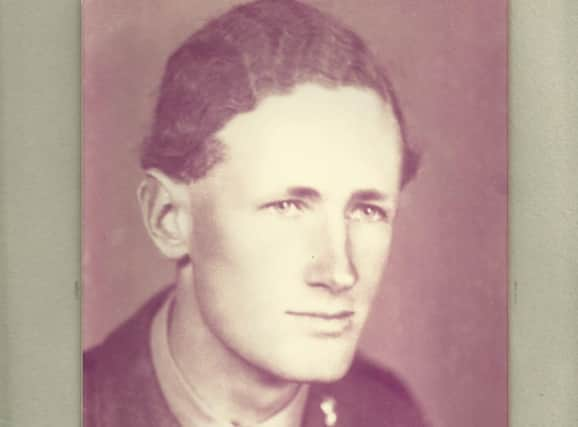Obituary: Dr Piers Mackesy, history tutor, military historian and author


Piers Mackesy was a gifted historian and author whose military and literary heritage imbued him with the essential elements for success in his chosen field.
His passion for the craft of writing was inherited from his mother, a journalist and novelist, while army life was steeped in his psyche as the son and grandson of generals, veterans of the Crimea, the Great War and the Second World War.
Advertisement
Hide AdAdvertisement
Hide AdAlthough aided by such an impressive family history, he was erudite in his own right, a sensitive tutor, effective administrator and a writer whose skill and clarity earned him an international reputation and fellowship of the British Academy.
He was born in his grandparents’ home just west of Aberdeen. His father was Major General Pierse Mackesy, who was awarded the Distinguished Service Order and Military Cross during the First World War and became a general during the Second World War. His grandfather fought as a Cameron Highlander in both the Crimea and the Indian Mutiny, also rising to the rank of general. His mother, Leonora Dorothy Rivers Cook (Leonora Cook), was the daughter of Aberdeen shipowners and wrote numerous novels under the names of Dorothy Rivers and Leonora Starr.
He spent his early years with his grandparents near Aberdeen but also lived in Quetta, now part of Pakistan but which was then in British India where his father was posted, and in Borden, Hampshire. As a boy he was fascinated by the military world of bands, parades and mounted cavalry and developed a lifelong love of horses, animals and landscape, particularly the Aberdeenshire countryside, though his first hunt took place in the deserts of western India when he was led on a donkey, chasing a jackal as his quarry.
Educated at Cargilfield Prep School, Edinburgh and then Wellington College in Berkshire, in 1942 he won a scholarship to Christ Church, Oxford. However, it was the middle of the Second World War and, following training, that he joined the Royal Scots Greys, fighting in northern France three months after D-Day.
He was still in his teens and battled through Belgium, Holland and into Germany with the regiment, rushing, in the final hours of the war, to reach the Baltic before The Red Army.
He served with his regiment until 1947 when he took up his studies at Oxford, graduating with a first-class degree in modern history in 1950. He completed his doctorate at Oxford’s Oriel College in 1953, followed by a year as a Harkness fellow at Harvard University in the United States. He then went on to become a fellow of Pembroke College, Oxford where he taught modern history with an emphasis on the history of European warfare from the mid-18th century to the end of the Napoleonic Wars.
In the 1960s he was a visiting fellow at the Institute for Advanced Study at Princeton University, New Jersey and a visiting professor of history at the California Institute of Technology. He was also the Lee Knowles lecturer at Cambridge in 1972, a member of the council of the Institute of Early American History and Culture in Williamsburg, Virginia and the London-based Society for Army Historical Research. In addition, he was a trustee of the National Army Museum in London and a fellow of the Royal Historical Society.
Mackesy, who was also a captain in the Territorial Army in the 1950s and regarded his experience on active service with the Greys as invaluable to him as a military historian, wrote six books and contributed to various other publications and journals. His first volume, The War in the Mediterranean, 1803-1810 was published in 1957 but it was his second, The War for America 1775-83, that won him international acclaim when it came out, in 1964, in the midst of the Vietnam War.
Advertisement
Hide AdAdvertisement
Hide AdHe also wrote Statesmen at War: the Strategy of Overthrow, 1798-1799; The Coward of Minden, The Affair of Lord George Sackville; War Without Victory: The Downfall of Pitt, 1799-1802 and British Victory in Egypt: the End of Napoleon’s Conquest, for which was awarded the Society for Army Historical Research’s Templar Medal in 1995.
Mackesy, who served twice as acting Master of Pembroke during his career and was highly regarded as an administrator and a tactful, diplomatic colleague, retired from Oxford in the late 1980s. He is also still remembered with fondness by students the world over for his patience and thoughtfulness, regardless of their academic ability.
First married in 1958 to Sarah Davies, with whom he had three children, he married his second wife, Patricia Timlin, in 1982. On his retirement they moved to his native North-east where he was chairman of the North of Scotland branch of the Royal Scots Dragoon Guards Association and where they lived initially on Donside before moving to Deeside.
A memorial service at Pembroke College will be held later for Piers Mackesy, who is survived by Patricia and his children William, Catherine and Serena.